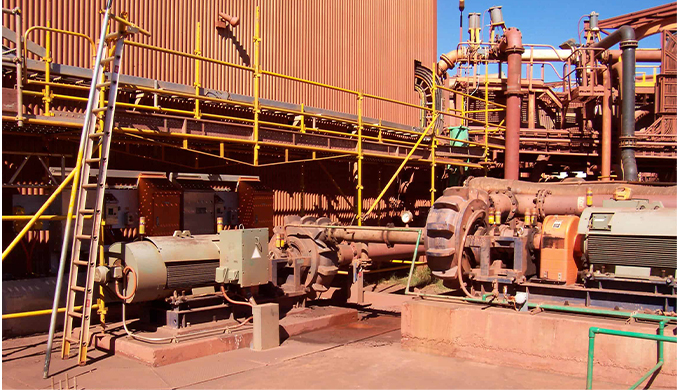English
- Afrikaans
- Albanian
- Amharic
- Arabic
- Armenian
- Azerbaijani
- Basque
- Belarusian
- Bengali
- Bosnian
- Bulgarian
- Catalan
- Cebuano
- Corsican
- Croatian
- Czech
- Danish
- Dutch
- English
- Esperanto
- Estonian
- Finnish
- French
- Frisian
- Galician
- Georgian
- German
- Greek
- Gujarati
- Haitian Creole
- hausa
- hawaiian
- Hebrew
- Hindi
- Miao
- Hungarian
- Icelandic
- igbo
- Indonesian
- irish
- Italian
- Japanese
- Javanese
- Kannada
- kazakh
- Khmer
- Rwandese
- Korean
- Kurdish
- Kyrgyz
- Lao
- Latin
- Latvian
- Lithuanian
- Luxembourgish
- Macedonian
- Malgashi
- Malay
- Malayalam
- Maltese
- Maori
- Marathi
- Mongolian
- Myanmar
- Nepali
- Norwegian
- Norwegian
- Occitan
- Pashto
- Persian
- Polish
- Portuguese
- Punjabi
- Romanian
- Russian
- Samoan
- Scottish Gaelic
- Serbian
- Sesotho
- Shona
- Sindhi
- Sinhala
- Slovak
- Slovenian
- Somali
- Spanish
- Sundanese
- Swahili
- Swedish
- Tagalog
- Tajik
- Tamil
- Tatar
- Telugu
- Thai
- Turkish
- Turkmen
- Ukrainian
- Urdu
- Uighur
- Uzbek
- Vietnamese
- Welsh
- Bantu
- Yiddish
- Yoruba
- Zulu
Telephone: +86 13120555503
Email: frank@cypump.com
Oct . 31, 2024 09:57 Back to list
pump for septic system
Choosing the Right Pump for Your Septic System
When it comes to maintaining a septic system, one of the most critical components is the pump. The pump plays a vital role in moving wastewater from the septic tank to the drain field or leach field. If you’re experiencing issues with your septic system or need to install a new one, understanding the importance of the pump and knowing how to choose the right one can save you time and money in the long run.
Types of Pumps for Septic Systems
There are several types of pumps that can be used in a septic system, each designed for specific applications. The most common types are
1. Effluent Pumps These are designed to pump the liquid effluent from the septic tank to the drain field. They are often used in systems where gravity flow is not possible. Effluent pumps can handle small solids and are ideal for typical residential applications.
2. Sump Pumps Though primarily used for removing water from basements, some homeowners may use sump pumps in septic applications to remove excess water. However, sump pumps are not specifically designed for wastewater and may not be suitable for all septic systems.
3. grinder Pumps These pumps grind solids into smaller particles before pumping them out. Grinder pumps are essential for systems where the effluent needs to be pumped over long distances or to higher elevations, as they can handle larger solids that effluent pumps cannot.
4. Aerobic Treatment Unit (ATU) Pumps In advanced treatment systems, ATU pumps are used to aerate the wastewater, promoting the growth of beneficial bacteria that help break down organic matter. These systems require specialized pumps that can handle aeration cycles.
Factors to Consider When Choosing a Pump
pump for septic system

When selecting a pump for your septic system, there are several factors to take into account
1. System Design Understand the design and layout of your septic system. If your property is on a slope, you may need a more powerful pump to ensure proper effluent flow.
2. Pump Capacity Assess the volume of wastewater your household produces. Pumps are rated by their capacity to handle specific gallons per minute (GPM). Choosing a pump with sufficient capacity ensures efficient operation without overworking the unit.
3. Head Pressure This refers to the height to which the pump must lift the effluent. Consider the distance and elevation from your septic tank to the drain field, as this will influence the pump’s required horsepower.
4. Durability and Maintenance Opt for a pump made of durable materials that can withstand corrosive environments. Regular maintenance is crucial for longevity, so choose a model that is easy to service.
5. Local Regulations Check local health and building codes. Certain areas may have specific requirements for septic systems and the pumps that can be used.
Conclusion
Choosing the right pump for your septic system is essential for its performance and longevity. By considering the types of pumps available, understanding the unique requirements of your system, and evaluating factors like capacity, head pressure, and durability, you can make an informed decision. Properly maintained, the right pump will ensure your septic system functions efficiently, safeguarding both your property and the environment. If unsure, consulting a professional can provide valuable insights tailored to your specific situation.
-
ISG Series Vertical Pipeline Pump - Chi Yuan Pumps Co., LTD.|High Efficiency, Energy Saving, Low Noise
NewsJul.30,2025
-
ISG Series Vertical Pipeline Pump- Chi Yuan Pumps|High Efficiency&Low Noise
NewsJul.30,2025
-
ISG Series Vertical Pipeline Pump-Chi Yuan Pumps Co., LTD.|High Efficiency&Energy Conservation
NewsJul.30,2025
-
ISG Series Vertical Pipeline Pump - Chi Yuan Pumps Co., LTD.|Advanced Hydraulic Design&Energy-Efficient Solutions
NewsJul.30,2025
-
ISG Series Vertical Pipeline Pump - Chi Yuan Pumps Co., LTD.
NewsJul.30,2025
-
ISG Series Vertical Pipeline Pump - Chi Yuan Pumps Co., LTD.|energy-efficient fluid handling&industrial durability
NewsJul.30,2025










